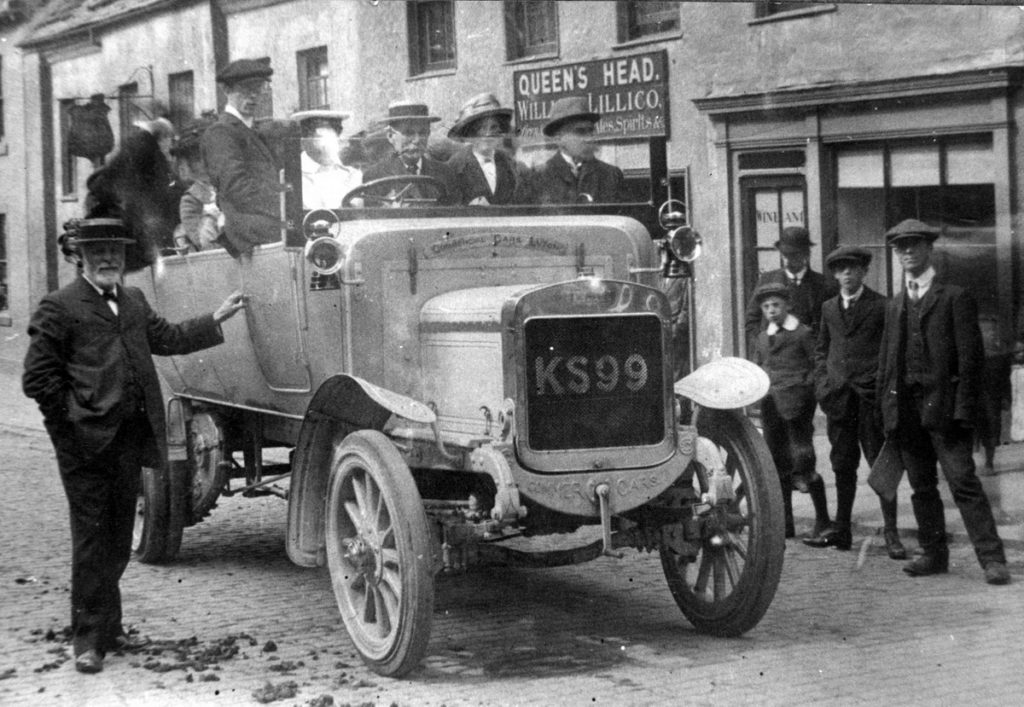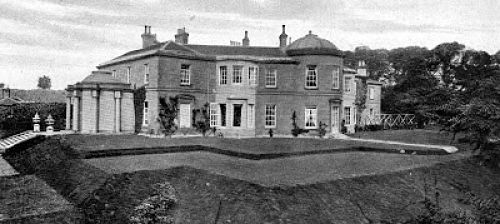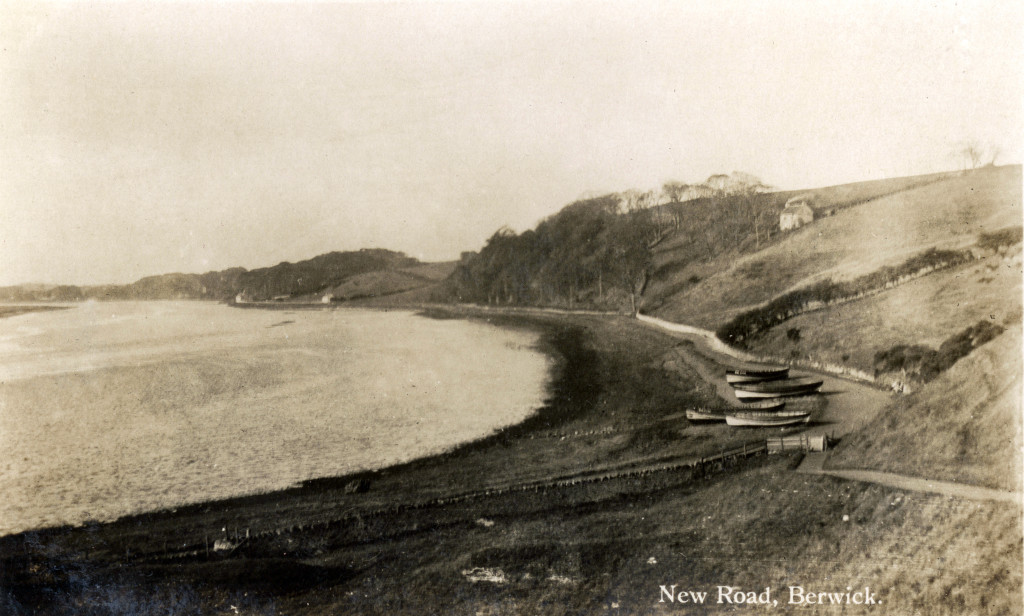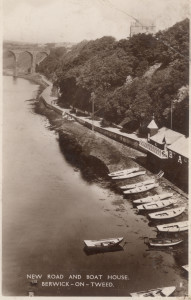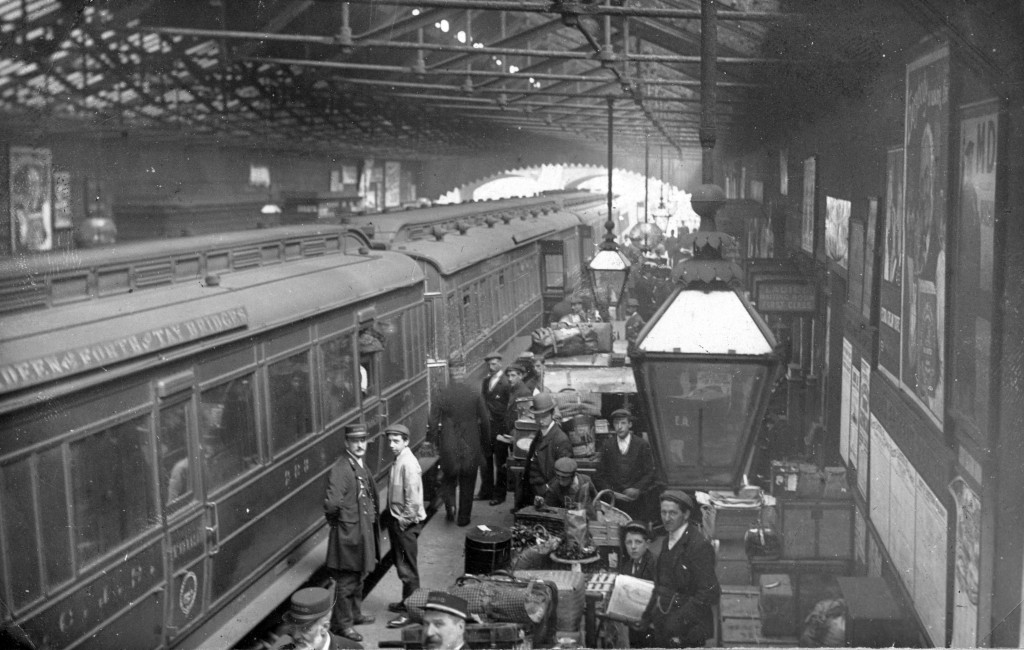
NORHAM
The Old Year’s Night was spent in a very happy fashion at the Primitive Methodist Church. At 7 o’clock the Rev. C. L. Stowe (accompanied by the Rev. J. Crawford, Presbyterian minister) took charge of a delightful programme of vocal and instrumental music; which had been arranged in the interests of Home and Foreign Missions. The programme was sustained by Mr M. Mason (Scremerston) organist, Misses Mason, Davidson, Nelson, and Mrs Pardoe, soloists; Mr R. Smart, elocutionist. The concert was followed by a supper daintily set out by the Norham lady-workers, and generously provided by the villagers. Missionary services were continued on Sunday, January 4th, when the Rev. R. Banham, Deputation form West Africa, preached at 2.30, while Mr Pringle, of Longdyke, occupied the pulpit in the evening. Miss Nelson was the soloist on Sunday. The total proceeds of the Missionary effort amounted to about £12.
The children attending the Church Sunday School were entertained to tea on New Year’s Day in the Old School, when a most sumptuous repast was enjoyed by the youngsters. The good things for the festive board were kindly provided by the Hon. Mrs Askew Robertson, Mrs Roberson, Mrs Herriot, Miss Embleton, and Mrs Ritson. Miss Head, formerly of Norham, and at one time a Sunday School teacher, sent two lovely iced Christmas cakes for the occasion. After tea, games were indulged in, and in this way a very pleasant evening was spent, the children’s smiling faces and loud shouts of laughter showing how thoroughly they were enjoying themselves. On the call of the Vicar, three hearty cheers were given for all those ladies who had so kindly provided the tea, and for those who kindly given their assistance to make the evening an enjoyable one.
BERWICK AND DISTRICT
BACHELOR’S BALL
After a lapse of five years due to war conditions, Berwick and District Bachelors’ annual ball was held in the Corn Exchange on Tuesday evening. This Ball has for many years been always regarded as one of the most notable of social functions in Berwick. Of the original list of bachelors responsible for getting up the first ball held on January 15th, 1879, very few now survive, those being Messers A. L. Miller, T. Thompson, D. K. Gregson, T. Darling, and Sir F. D. Blake. Of these Mr Thos. Thompson is the sole survivor of the Committee of five.

Thanks to the artistic taste of Messrs John Crow and Son, decorators, the Corn Exchange, losing its everyday, business-like appearance, was transformed into a beautiful ball-room, the walls of which were panelled in pale blue and white. Special doorways leading to various ante-rooms were done in white and pink mouldings, with the Berwick coat of arms and the figures 1920 painted in pink.
Allan’s band was accommodated on a raised platform, tastefully decorated with pot plants, at the top end of the room. The whole effect of the ballroom was greatly enhanced by the electric light decorations, put up under the direction of Mr Barlow, Resident Engineer, Urban Electric Light Works. Intermingled with evergreens, strings of coloured lights were suspended from the roof girders, prettily coloured Chinese lanterns also appearing in the decorations round the room. A special staircase, draped in white and trails of ivy, was erected by Messrs J. Cockbburn and Son, from the floor of the ballroom to the gallery and thence to the supper room, which was tastefully laid out. The gallery, used as sitting out accommodation, was ornamented by fir trees. The two side-rooms downstairs were set out as refreshment rooms, the front entrance being transformed into a sitting-out rom, shade with soft crimson lights.
GLENDALE
COMRADES’ BALL
A very successful ball was held in the Drill Hall, Wooler, on Friday evening last, under the auspices of the Comrades of the Great War. Despite the numerous attractions in Wooler and District during the holiday season, over a hundred were present. The spacious hall was beautifully decorated for the occasion. High-class music was supplied by Allan’s Band, Berwick, and many encores were clamoured for. Comrades W. Dixon and T. Curle acted as M.C.’s. The supper was catered by Comrade J. Shilan, Temperance Hotel, Wooler, and as on previous occasions, to the satisfaction of all present. In addition to the supper oranges, apples and grapes were served out. Dancing was kept up with great vigour until 3.15 a.m., when reluctantly one and all wended their way homewards after a most pleasant evening.
EDUCATION COMMITTEE
EVENING CLASSES FOR SOLDIERS
The Clerk read the recommendation of the General Purposes Committee, which, after having been in communication with the Scottish Command, the Registrar of Evening Classes, and the County Director, agreed to recommend that evening class instruction in Woodworking, etc., be given to soldiers, the cost of which would be defrayed by the Military, and that the classes be arranged for with the teachers
The Chairman moved the adoption of the report, saying this was going to be no expense for the Committee. Anything required would just be intended for. Agreed to.
The Clerk reported that, including arrears, the amount to be distributed to teachers under the County Scheme of Augmentation of Salaries was £1325 15s 5d, and this augmentation would be paid out with the December salaries.
LOCAL NEWS
In the past history of Berwick as a shipping centre one of the most outstanding names was that of Gowan, at whose ship-building yard on the Quay below the eight-gun battery, numerous vessels were constructed. Ship-building is carried out no longer in Berwick, and there are now no representatives of the Gowan family in the town. Some members of the family are, however, still connected with the ship-building trade elsewhere. Mr Arthur Byam Gown, as is well-known, is Managing Director of Palmer’s famous works on the Tyne.

Others, we learn, are doing well in the colonies, where Mr John Miller Gowan runs a station in the River Nia, Australia. He married his cousin Estelle, a daughter of the late John Gown, of Melbourne, and has five sons and one daughter. The eldest son went to the front with the 17th Battalion and was in the Great Push in France – arriving just in time. The next boy is in the Bank of Australia in Henty, the younger ones being still at school. Another member of the family, also in Australia, is Mr Henry Flockhart, who follows the profession of a journalist, and whose mother was Miss S.L. Gown. He never can forget, he says, the happy days he spent in Berwick and Spittal, with fly-fishing up the Whitadder and kettles up the Tweed.
During the week some of the local coal dealers have experienced difficulty in getting enough coal to meet the demands of their customers. Many householders have been without coal, a state of affairs, which at this time of the year, is far from pleasant. Every effort to adjust supplies has been made by Mr Turnbull, the local Fuel Overseer, who has made a point of at once supplying the needs of households where there was sickness.

The shortage, which is not regarded as serious, is attributed to the recent three days holidays at the pits at Scremerston, when supplies were allowed to get behind. It is poor comfort to say that other districts are, and have been, much worse off, but with a pit two miles away, there is little fear of a serious shortage in Berwick and district. To help out supplies in the meantime, recourse has been had in some instances to wood as fuel, and the Overseer has also exercised his rights and commandeered two waggons of coal off the railway.



